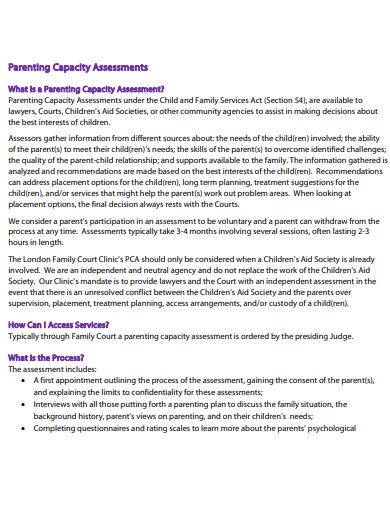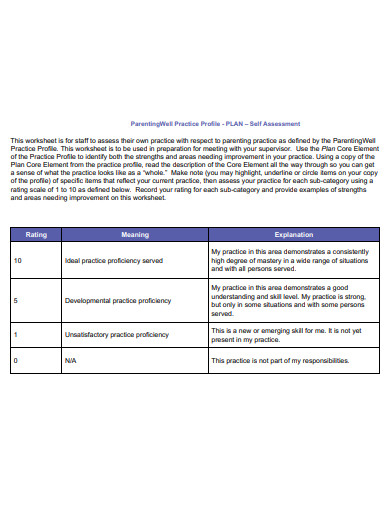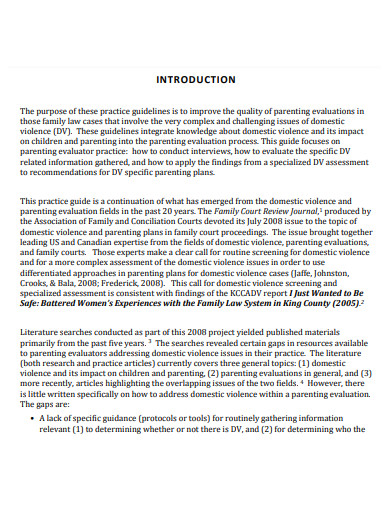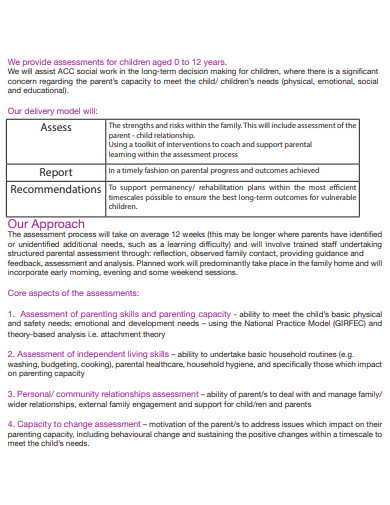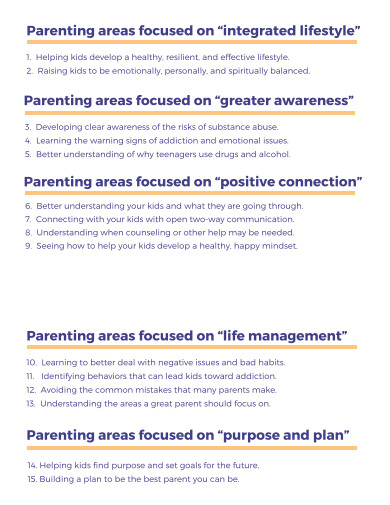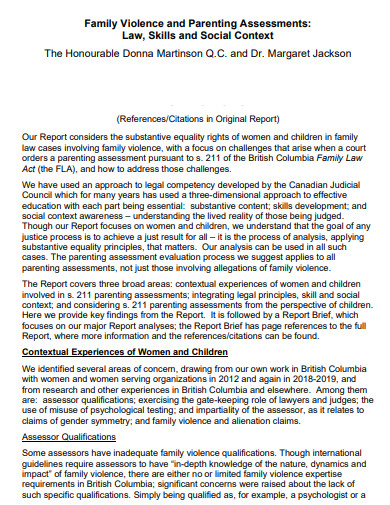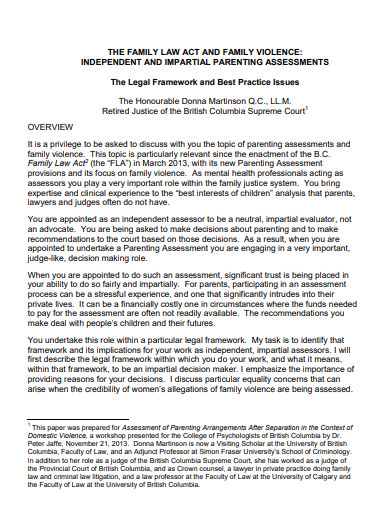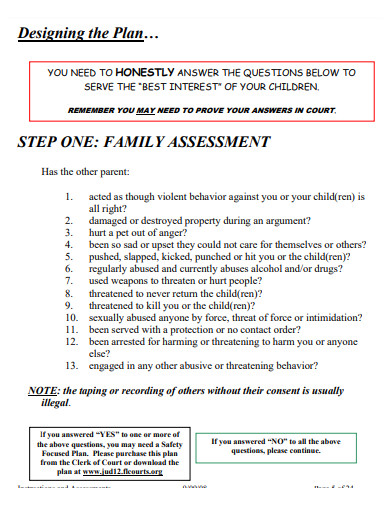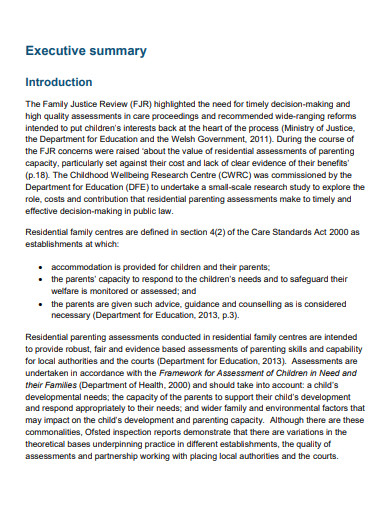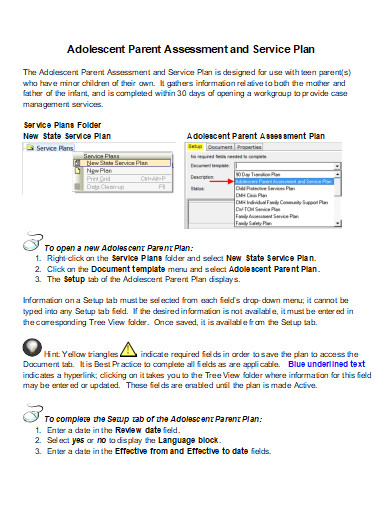It’s no secret that being a parent is not an easy job. Parents take care of their children constantly to make sure they are healthy and safe and because of these priorities, every parent has a different style of parenting. Unfortunately, not all parents can be good examples to their children. Some neglect their children, even the little ones, and deprive them of their needs or emotional support. These circumstances are concerning and this is where child protection and welfare agencies step in to assess the parents’ fit to be good parents. Read the article to know how to create a parenting assessment plan.
10+ Parenting Assessment Plan Samples
1. Parenting Assessment Plan
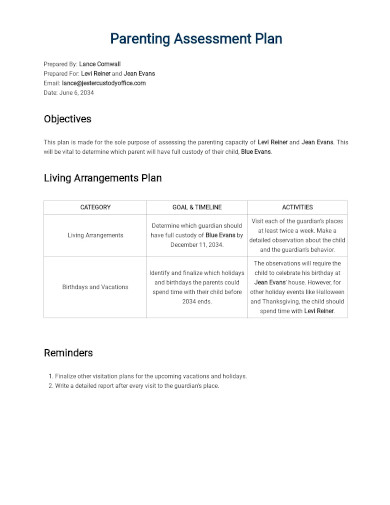
2. Parenting Capacity Assessment Plan
3. Parenting Self-Assessment Plan
4. Domestic Violence Parenting Assessment Plan
5. Parenting Assessment Service Plan
6. Simple Parenting Assessment Service Plan
7. Domestic Violence Parenting Assessment Law Plan
8. Impartial Parenting Assessment Plan
9. Parenting Assessment Plan Example
10. Residential Parenting Assessment Plan
11. Adolescent Parenting Assessment Plan
What is Parenting Capacity?
Parenting capacity is the ability for a parent to be responsible enough to take care of their child in the best way possible and provide them with their basic needs to support them until they become an adult.
The four elements of a good parenting procedure that parents should do are:
- Meeting children’s health and developmental needs
- Putting children’s needs as the top priority
- Providing routine and consistent care
- Acknowledge problems and engage in support services
What is the Process of Assessing Parents?
A parenting assessment is done to test the knowledge of parent/s about their children and analyze their ability to give them the care they need and deserve.
The assessment is usually done by agencies involved in child welfare and services where they assess parents by asking questions about their personal history and their attitude towards parenting. They will also be observed and evaluated on how they deal with the difficult behavior of their children. These agencies will look for the emotional connection and communication of parents with their children.
In assessing parents, these agencies do the following:
- Identify strengths and weaknesses: One of the key things parenting assessment focus on are the parents’ strengths and weaknesses in providing basic care, ensuring safety, giving emotional support, stimulating talents and abilities, giving guidance, and providing stable living conditions to their children.
- Examing parents’ backgrounds: Other key aspects of a parenting assessment may examine are the parents’ family history, extended family (such as relatives), housing, employment, income, substance abuse (if any), and social integration. These factors are important to assess since they can affect the parenting style of the parents and the children’s development.
- Finding out any instances of poor parenting practices: The things mentioned above will be used to assess if poor parenting is regularly occurring and done by parents. They will also assess parents of other behavioral or psychological instances such as:
- Medical history
- Relationships with other people starting from childhood, adolescence, and adulthood
- The parenting style of the grandparents towards their children (the parents) and if the parents reflect the same style or not, and their personal feelings toward it
- Personal hygiene and presentation of themselves towards other people
- Confidence level and self-esteem
- Psychological issues affect their capacity in providing good parenting
- Attitude and understanding to authority
- Previous experiences with children before becoming parents
- Doing interviews aside from parents: To get the full picture of parenting capacity, some agencies also interview carers (babysitters or nannies) of the children, the children themselves, the extended family (grandparents and relatives). They also observe parents in real-time how the parents interact with their children in various settings and at different times of the day.
FAQs
How long does it take to do a parenting assessment?
The assessment, depending on the situation of both parents and children, is usually completed within 45 working days.
What are the three main parenting styles?
The three main parenting styles are:
- Authoritarian: where total obedience is expected from the child without too many questions or hesitation
- Permissive: where children have few behavioral guidelines imposed by parents
- Authoritative: where parents set strict rules but can be lenient at most times
What is neglectful parenting?
Neglectful parenting or also called uninvolved parenting is when parents don’t respond to any of their children’s basic needs such as food, clothing, shelter, and their desires. Some examples of neglectful parenting are putting adults’ needs first before their children, chaotic living conditions and lack of routine that children can comfortably follow as a stable living, unwillingness to engage with support services
All you need to include in your plan are the things mentioned above. Make sure it is written clearly and in great detail. Avoid using vague terminologies and use specific words to describe your questions and your observations. Your plan will be your guide map when you conduct the assessment so make sure it is free from error and at the same time make it flexible enough for you to easily update any changes in different situations. To help you get started making the assessment plan, download our free sample templates above to use as your reference!
Related Posts
FREE 10+ Team Assessment Samples in PDF MS Word
FREE 6+ Sample Dap Note Templates in PDF MS Word
FREE 6+ Security Assessment Templates in PDF MS Word
FREE 9+ Sample Project Risk Assessment Templates in PDF MS ...
FREE 10+ Change Impact Assessment Samples [ Management ...
FREE 10+ Employee Training and Development Plan Samples in ...
FREE 10+ Sample Project Assessment Templates in PDF MS Word ...
FREE 6+ Sample Self Care Assessment Templates in PDF MS Word
FREE 10+ Hazard Assessment Form Samples in PDF
FREE 10+ Sample Construction Risk Assessment Templates in PDF
FREE 7+ Sample Skills Assessment Templates in PDF MS Word ...
FREE 8+ Sample Health and Safety Risk Assessment Templates in ...
FREE 10+ Vulnerability Assessment Samples [ Security, Network ...
FREE 10+ Vulnerability Assessment Samples [ Security, Network ...
FREE 7+ Evaluation Plan Templates in MS Word PDF

